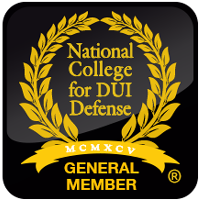
Facing theft charges in Galveston County can be daunting and stressful. Hiring a skilled Galveston County theft lawyer from Napier Law Firm can significantly impact the outcome of a case. Their expertise in local laws and experience with the court system are invaluable in navigating the complexities of theft allegations.
Many individuals may be unsure about their rights or the best course of action after being accused. Legal representation from a Galveston County criminal defense attorney is critical for understanding the nuances of the law, potential defenses, and the ramifications of a conviction. With the right attorney, clients can build a strong defense aimed at protecting their future.
The Napier Law Firm is dedicated to providing personalized attention and strategic legal advice. Our commitment to clients ensures that each case is handled with utmost care and professionalism, giving individuals the confidence they need during a challenging time.
Understanding Theft Charges in Galveston County
Theft charges in Galveston County fall into various categories and involve specific legal terminology. Understanding these elements is essential for anyone facing theft allegations.
Theft Offense Categories
Theft offenses in Galveston County can be classified into several categories depending on the value of the stolen property. Common categories include:
- Petty Theft: Typically involves property valued at less than $2,500. This is generally classified as a misdemeanor and carries lighter penalties.
- Grand Theft: Involves property valued at $2,500 or more. This is classified as a felony and can result in significant prison time and fines.
- Burglary: Not strictly theft, but involves unlawfully entering a structure with the intention of committing theft or another crime. This can escalate in severity based on circumstances.
- Shoplifting: This specific type of theft that occurs in retail environments. Depending on the value of the stolen goods, it can be treated as either petty or grand theft.
Each category has specific legal ramifications and consequences.
Key Legal Terminology
Familiarity with legal terminology is crucial when navigating theft charges. Some key terms include the following:
- Defendant: The person accused of committing theft.
- Plaintiff: The party (often a person or business) alleging that theft occurred.
- Intent: A key factor in determining guilt; it refers to whether the defendant planned to commit theft.
- Mens Rea: A legal term for “guilty mind,” indicating the mental state of the defendant at the time of the crime.
- Restitution: Compensation for the victim for the loss incurred due to the theft.
Understanding these terms can aid in comprehending the legal process surrounding theft charges.
Navigating the Legal Journey
Understanding the legal journey is crucial for anyone facing theft charges. Knowledge of the legal process, alongside the client’s involvement, shapes the defense strategy.
The Legal Process
The legal process begins when charges are filed. The accused is notified and must appear in court. This phase often includes arraignment, where charges are formally presented.
Pre-trial motions and hearings follow, allowing the defense to challenge evidence and outline strategies. Discovery is a vital step where both sides exchange information, supporting a fair trial.
If the case goes to trial, it involves jury selection, opening statements, witness testimony, and closing arguments. The judge or jury then deliberates before reaching a verdict. Each step is governed by strict procedures to ensure justice.
Client’s Role in Legal Proceedings
The client plays a significant role in their legal journey. They must engage with their attorney actively, providing accurate information about the case. This cooperation is essential for building a robust defense.
Clients should attend all court appearances and stay informed. They may also be asked to participate in discussions about plea deals or testify if necessary.
Effective communication with the attorney ensures that clients understand their options and the implications of each decision. This collaboration can significantly impact the trial’s outcome and the client’s future.
Building a Strong Defense
A strong defense relies on clear strategies tailored to the specific circumstances of the case. This section outlines essential methods for developing effective defense strategies.
Developing Defense Strategies
Crafting effective defense strategies involves a thorough analysis of the case details. Key considerations include reviewing evidence, identifying potential legal loopholes, and assessing witness credibility. Each of these elements can significantly impact the outcome of the case.
Legal defenses may include claiming a lack of intent, challenging the legality of the search and seizure, or arguing that the accused was misidentified. Understanding the facts can lead to a robust defense strategy tailored to the individual’s situation.
Collaboration with an experienced Galveston theft attorney ensures all angles are explored. This partnership permits thorough preparation, enhancing the chances of a favorable outcome for the defendant. When you need a theft defense lawyer in Galveston County, contact Napier Law Firm as soon as possible.








